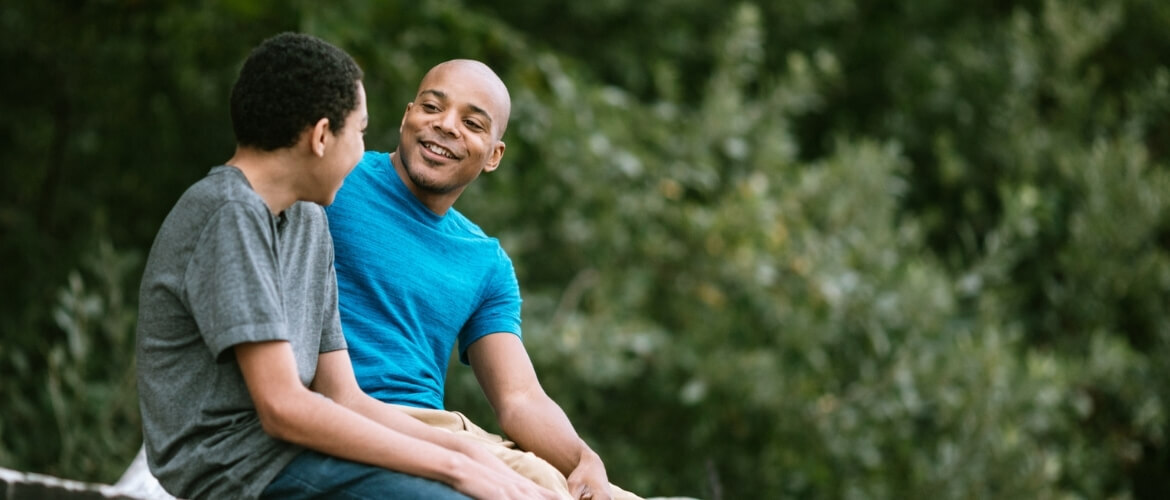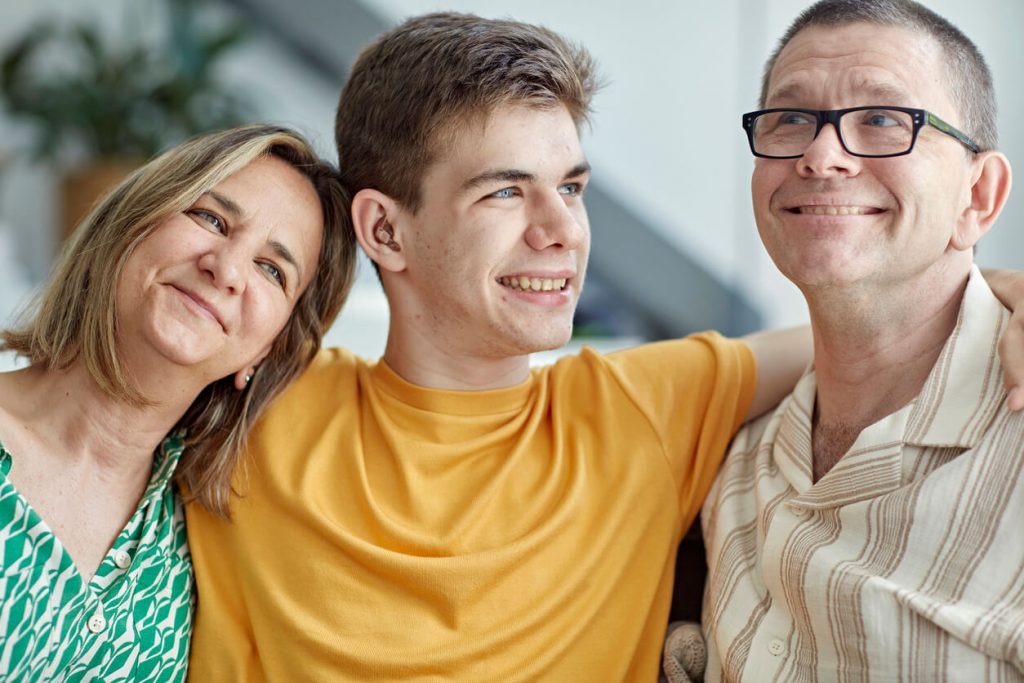We’ve decided we want to help our child with accountability, but we don’t know how to explain what we will be doing with them and why.
We don’t want our child to believe that we think they are broken. We don’t want them to fear that we are looking for a way to exert more control over them. We may worry accountability will make our child uncomfortable.
These are all valid concerns. This is why it matters how we introduce the idea of accountability to our children. Explaining what accountability is should make our children more interested, not make them want to avoid it.
Why do I want to do accountability with you?
Accountability is part of growing up. We hopefully started conversations about avoiding pornography with our children when they were young. This is good, but it is not the same thing as accountability.
Eventually, children reach an age when they need to access the internet for school. Children also reach an age when we need to teach them to use mobile devices and social media safely. Starting accountability is like teaching them how to do these things without endangering themselves and others.
It is the same as learning to drive a car. When a teenager gets a learner’s permit, we do not have one talk with them and then give them the keys to the car. We ride in the car with them and teach them how to drive safely. We do this a lot more than one time before they get their license. Wanting to drive a car requires a child to have a supervisor with them while driving, typically for a full year.
Online accountability is no different. When a child starts using a mobile device or a computer, we first need to come along side them to teach them to be safe. Like with a car, we need to do this for a considerable period of time.
I do not need to remind you all the ways children can bring harm to themselves and others online. Like driving a car, we do not expect that our children know how to “drive safely” online without a lot of supervised practice. In this sense, accountability is supervised practice driving online.
The message to our children is then, “I want you to be able to use the internet and even have a mobile device. I am excited for you with this coming new privilege. So, I want to teach you how to do that safely, and accountability is how we do that together.”
Accountability is not treating an adolescent like a baby. Accountability is a way to honor our child by saying, “You are old enough now for me to start teaching you how to be safe online.” What kid would not be excited about that?
What will accountability look like?
Learning to drive a car safely means learning to ignore a phone that may start ringing in the car. It means learning to tune out people in the car who may be talking and distracting us. It means paying close attention to signs and not running over cars, bicycles, and people around us.
Online accountability means learning to tune out that bug in our ear that says, “Hey, wanna see if we can find something sexy on the internet?” It means paying attention to our emotions and talking through them together instead of ignoring them. It means not running over people by typing out mean comments directed at them.
To do that, we will have to talk about our feelings before we go online. It means sharing our emotions and resolving anxiety and disappointment in healthy ways. It means being honest with each other about sexual feelings rather than seeking out related content in secret. It means frequently talking about what we see people say online and deciding how best to respond, before typing anything.
Adolescents experience a massive flood of hormones that cause them to seek excitement. This is why we don’t let them drive alone for a long time, otherwise they would all be driving 80 miles an hour through crowded neighborhoods. Driving fast feels exciting.
Along with excitement hormones add a wildly increased interest in sex. The internet is full of sex and excitement, which is why we don’t let adolescents loose without an ally holding them accountable. That ally being us.
We can tell our children that in accountability we will:
- Set up Covenant Eyes on all devices.
- Talk often about the emotions we are experience with each other.
- Talk about what each of us is doing online.
- Help each other find better ways to deal with feelings than do inappropriate things online.
- Talk about sex and sexual feelings in healthy and appropriate ways.
Will I be safe to share my mistakes?
This is most children’s number one concern. We recently did a focus group with 30 teenagers about accountability. The anonymous survey clearly indicated that teenagers’ primary concern about discussing accountability is that they will be punished if they are honest. One 15-year-old boy summed up the group’s feelings like this, “We just want to have a punishment-free conversation.”
The question we as parents need to ask ourselves is, can we do accountability with our children without punishing them when we discover they viewed pornography? Are we able to not get angry at them? Are we able to prove we love them in spite of their mistakes?
It is easy to say we are safe; it is not so easy to be safe. For some parents, this is the greatest challenge with accountability. However, there are a few things we can say to help our children see that we will be safe allies for them. Here are a few things we could say:
- “You will not be in trouble for being honest with me.”
- “I will not love you less if you give in and look at pornography.”
- “I understand what it feels like to really want to look at pornography.”
- “Let me tell you my story with pornography at your age.”
Accountability should be a safe place for our children to be honest and be accepted, in spite of any weaknesses and mistakes. They deserve some assurance that this is what they will experience with us.
I Am Inviting You In
Accountability is not to exert control over our child but to invite them into a more adult relationship with us. We will also be sharing our feelings and emotions. They will receive our accountability reports the same as we receive theirs. This is a two-way street, not one-way control.
In a sense, we are telling our children that we want to get to know them at a deeper level and we want them to know us at a deeper level. We are raising them up to be young adults by inviting them into accountability.
We could say to our children something like, “You are getting older. I want to invite you into (manhood/womanhood) by doing accountability with me. Would you honor me by doing this?”
That doesn’t sound too scary, does it? Actually, that sounds kind of exciting.








What should I do if I’ve had open and honest conversations and my child continues to be secretive?
Thanks so much for your comment. Have you read this resource? It shows a high-level of these conversations and may help the child open up. http://www.covenanteyes.com/equipped
Even with the best of children this sometimes happens. It can be due to curiosity or hormones that feel overwhelming. Most parents can empathize if we think back to our childhood.
A couple of ideas to try are: 1) Keep having conversations. Don’t let a bump in the road discourage you from continuing. 2) Limit conversations to feelings and emotions for a while. That is still very personal but less threatening. Then try again to work back into accountability conversations a couple of weeks later.
How/Where can I buy the book, “Equipped”, book (Smart Catholic Parenting in a Sexualized Culture” ?
I am not able to find it?
Thank You
You can download it here free. http://www.covenanteyes.com/equipped
This article offers good parental advice. May I suggest that it is more beneficial if parents encorporate godly wisdom as we teach our child/children about accountability, for they will surely grow into a mature and responsible individuals.